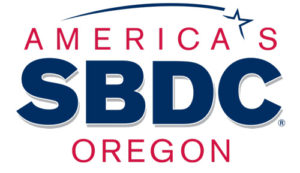It’s Time to Get Serious About Cybersecurity
Critical resources to keep small businesses in Oregon safe online
Most small businesses do not realize how vulnerable their company is to cyber threats until the business has been compromised.
We have heard it all – from ransomware, to phishing emails, to security breaches. Unfortunately, most small businesses are not prepared to manage the downtime or cost involved.
In fact, a recent survey by Insureon showed that only 18 percent of small business owners believe they are at risk for a cyber attack, in part because they don’t think they have anything worth stealing. The reality is that access to employee lists, customer lists, and credit cards are very much worth stealing.
Through the Cyber Oregon initiative, small businesses have the opportunity to get cybersecurity advising and take the vital steps needed to improve their cybersecurity posture. As part of our partnership with the Oregon Center for Cybersecurity at Mt. Hood Community College (MHCC), small businesses have the opportunity to work with a cybersecurity student to help address their security needs.
All students follow a strict project plan with oversight on the recommendations. In addition, our team works with a host of security providers that help advise, guide, and recommend next steps for security needs. Click below to sign up for a free cyber advising session, and be sure to take advantage of all the resources available on this site.
News
Stay current with the fast-changing cyber world.
Resources
Find what you need to stay safe online.
Events
Make connections and get informed.
Help
Get the help you need to stay safe online.
Spotlight Profile

Ruth Swain
Ruth Swain is the interim director of the Small Business Development Center, Mt. Hood Community College. She is a small business champion and award-winning designer/marketer. Small businesses are what America is built on. In her role, Ruth enjoys meeting and encouraging entrepreneurs and is passionate about helping people and organizations achieve their goals.
Her latest passion is teaching small businesses how to keep equipment and data secure from the ever-present threat of cyber attack.
Ruth's background and expertise includes management, strategic planning, business start-up and economic development, funding, program development and board training, in addition to marketing.
She has served as an organization leader and project consultant for thirty years, and has raised over $100 Million in funding for small business growth, community economic development and higher education.
“Helping Build Oregon's Best Businesses" is the Oregon SBDC network mission. We offer free advising, small business classes, and specialized services for businesses.
Cybersecurity
The Mt. Hood SBDC partners with the Oregon Center for Cybersecurity at Mt. Hood Community College and other organizations such as the Technology Association of Oregon (TAO) to provide small businesses with cybersecurity and technical advising on how to protect and prevent cyber-attacks.
Mt. Hood Community College is a Center of Excellence designated by the National Security Agency and the U.S. Department of Homeland Security.
At Mt. Hood Small Business Development Center, we offer confidential, no-cost advising and business classes to help you with:
- Cybersecurity safety practices
- Starting your business or Growing your business
- QuickBooks for business
- Web site development and Search Engine Optimization (SEO)
- Facebook for Small Business
- Financial and loan packaging support
- Franchise assistance
Throughout the year Cyber Oregon provides online education and events that support real time information on your small business security needs.
Some of the topics we address include the following:
Creating a Cybersecurity plan
According to the National Cyber Security Alliance a comprehensive cybersecurity plan needs to focus on three key areas:
- Prevention: Solutions, policies and procedures need to be identified to reduce the risk of attacks.
- Resolution: In the event of a computer security breach, plans and procedures need to be in place to determine the resources that will be used to remedy a threat.
- Restitution: Companies need to be prepared to address the repercussions of a security threat with their employees and customers to ensure that any loss of trust or business is minimal and short-lived.
Managing Phishing Emails
According to Wikipedia phishing is the attempt to obtain sensitive information such as usernames, passwords, and credit card details often for malicious reasons, by masquerading as a trustworthy entity in an electronic communication. Learn how to prevent email and messaging threat such as phishing and spam and keep your business safe.
Handling Ransomware
Ransomware has been more prominent over the years. In 2015, the FBI logged more than 2,400 reports of ransomware attacks resulting in losses more than $24 million. Ransomware is a malicious code that a hacker places on a computer device or network. Once the code is in place it will lock the device or network out of their own data and demand money in the form of a ransom to unlock the malicious code.





